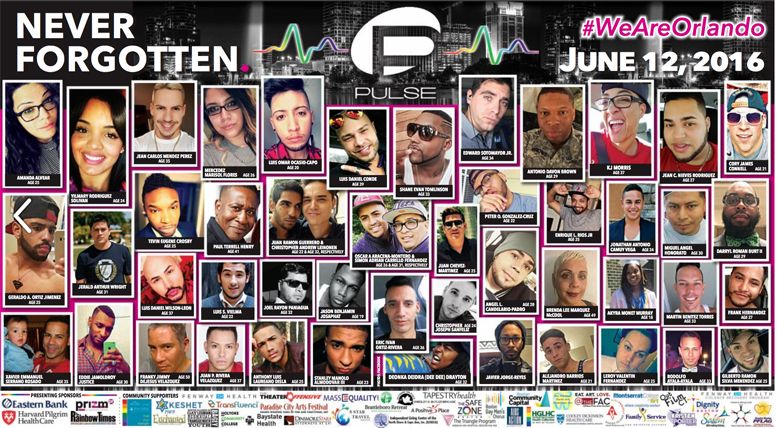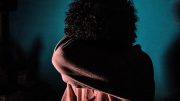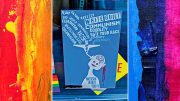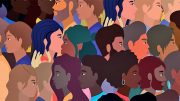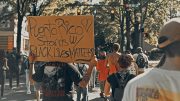The tragedy that rocked our world: Pulse Orlando still beats in our hearts
By: Mike Givens/TRT Assistant Editor—
It was 12:45 a.m. in the early hours of Sunday, June 12, 2016 when Javier Nava arrived at Pulse Orlando Nightclub with his husband, Adrian Lopez, to meet up with a group of six other people. It was Latin Night at the LGBTQ hotspot and the group of eight spent their time talking and dancing. Nava explored the club including its back patio and eventually found himself on the main dance floor.
While dancing, he said he thought a fight had broken out.
“I thought it was a personal fight or something,” he said of the loud bangs he heard. “Everyone dropped to the floor and I dropped to the floor too.”
What Nava didn’t know at the time was that Omar Mateen, a mentally unhinged security guard carrying a Sig Sauer MCX rifle, had just opened fire on patrons of the nightclub in what would become the most infamous mass shooting in the history of the country.
“I felt something hit my abdomen. It was something hard,” Nava said. “When I looked at my body [I saw] a hole in my abdomen. In that moment, I was thinking I would have to move somewhere else because if I stayed there I would have been [shot again].”
During the chaos that ensued, Nava lost contact with his husband and his group of friends. With the intention of getting up to the roof, he ran up a flight of stairs and barricaded himself in an office with a woman and four other men, one of whom had a gunshot wound to the leg.
After being trapped in the office for nearly 40 minutes, first responders stormed into the office to rescue the hostages. Still bleeding and severely hurt from the gunshot wound to his stomach, Nava stumbled back down the stairs to exit the club. Police officers were engaged in a shootout with Mateen and as he reached the bottom of the stairs.
“I had to cross the main dance floor. That was the hard part in the moment, because there were a lot of people on the floor… there was a lot of blood on the floor,” he said. “[The police] told me not to look around, just go straight, go straight.”
As he crossed the dance floor he did look around and of all of the bodies lying on the floor, he recognized the face of one.
“I saw one person on the floor,” he recalled sadly. “And it was him. His name was Gilberto Silva.”
When Nava arrived at the club earlier that evening, he greeted Gilberto Ramon Silva Menendez, 25, and another friend, Peter O. Gonzalez-Cruz, 22, also known as Peter Ommy, who was also killed. Nava considered both men to be close friends.
Nava was able to make his way out of the club and across the street to seek medical help. As he crossed the street, he saw his husband, Adrian Lopez, who had escaped the shooting without physical harm.
Of the six other people in their group, four of them were killed in the shooting: Simon Adrian Carrillo Fernandez, 31; Oscar A. Aracena-Montero, 26; Rodolfo Ayala-Ayala, 33; and Jean C. Nieves Rodriguez, 27. Two other friends in the group, whom Nava identified as Gilca and Joaquin, were wounded, but survived.
By the end of that evening, six of Nava’s friends and acquaintances were dead.
***
Christopher Hansen was visiting Pulse Nightclub for the first time that evening. He’d moved to Orlando just two months before and had made plans to meet up with a friend that night.
The decision to move to Orlando hadn’t been a difficult one. Having visited Disney World in Orlando when he was 5, Hansen said that the move was supposed to be a positive transition in his life.
“I was at a point in my life where I needed to feel magic again, and love,” he said.
Hansen had arrived early in the evening, shortly after 11. He’d met up with his friend, who ended up leaving around midnight. Deciding to explore the club after his friend left, Hansen navigated the dance floors, back patio, and took in the scene.
“I saw a couple dancing across the dance floor,” he said.
The sense of love and intimacy he saw on the floor stirred within him a sense of yearning.
“I could see the smiles on their faces … When I have a partner, I want to have that love; that’s the kind of love I want,” he recalled saying to himself as the couple danced.
Sipping on Jack Daniels and ginger ale, Hansen watched a few drag performances and observed the club steadily fill to capacity. At one point, he said he walked over to the VIP area and sat on the back of one of the couches.
Suddenly, he thought the music had changed.
“I thought the DJ had amped up the music,” he said, not realizing that the loud noise he heard was not music, but the first three gunshots from Mateen’s Sig Sauer.
People dove to the floor, glass shattered, and chaos ensued. In the frenetic race to take cover, Chris considered running into the restroom, which he’d been in earlier to wash his hands. His instincts told him not to and he quickly decided to run outside to the patio. He helped push a fence down and ran for his life along with several other survivors. His night was far from over.
“ … full of blood … ”
Adrian Lopez, husband of Javier Nava, had just finished dancing with an acquaintance, Xavier Emmanuel Serrano Rosado, and was heading back to his group of friends on the main dance floor when the shooting started. Rosado, 35, would be killed during the shooting just minutes later.
“I looked over to my left and saw a bunch of people running and all of a sudden I noticed I was on the floor, I guess I fell,” he said. “And somebody fell on top of me, so I stayed there for a second hoping that the shots were going to stop and that was going to be it.
“But when I looked towards the door, I saw [Mateen] still shooting at people on the floor. That’s when I realized I needed to get out of there.”
Lopez said at one point he turned around and saw Mateen still shooting at people in the club and had no idea where his friends or husband were as they had all scattered after the shooting began.
Lopez said he was able to get to the back patio and was going to call the police.
“I reached for my phone and when I looked at it, it was full of blood,” he said.
When they saw each other, Lopez and Nava weren’t allowed physical contact as Nava was placed in an ambulance and promptly taken to the hospital while Lopez was detained by police with other survivors in a cordoned off area. However, both men knew the other was alive.
Lion, Taurus, Cleveland
Having escaped the massacre going on within the walls of Pulse, Hansen, in shock and still processing what was happening, saw a man he identified as Carlos carrying another man who’d been shot.
Hansen immediately set about helping Carlos carry the wounded man, whom he identified as Junior, to safety.
“It was like I stuck my hand in paint,” Hansen recalled of carrying Junior and all of the blood he saw from his wound.
Hansen took off his bandana and tied it around the wound. He and Carlos got Junior to safety, but soon afterwards, they both heard a cry for help.
In the grass, not far from the club, a young woman Hansen identified as Kalisha was hysterically crying and begging the two men for help. The 19-year-old wanted to be pulled out of the grass as she couldn’t move on her own.
Hansen and Carlos hesitated about moving her without knowing whether it would worsen her injury, but relented and decided to help her. Hansen cradled Kalisha in his arms until emergency medical personnel arrived.
“She was telling us she was cold and her heart hurt,” he said.
To keep her awake and alert, Hansen said he talked to her.
“I could feel her emotions, but I couldn’t get myself emotional because I would have lost concentration on what I was trying to do,” he said, noting that he had to do his best to keep her calm and focused. “I asked her what her favorite animal was (a lion), what her sign was (Taurus), and where she was from (Cleveland),” he said.
At the time, neither Kalisha nor Hansen knew that she had a gunshot wound to the back. It was only after she was in the ambulance, that medical professionals would tell her where the wound was. Hansen said that his cradling her between his legs staunched the wound long enough for help to get there, saving her life.
“I still have the stain on my shorts, where she was,” he said.
“The air was thick with all kinds of pain and confusion”
Nancy Rosado (no relation to Xavier Emmanuel Serrano Rosado) was planning to attend church on Sunday morning when she heard news of the shooting. She went to the Gay and Lesbian Community Center of Central Florida , where members of the LGBTQ community were attempting to mobilize resources.
Later, when she arrived at Orlando Regional Medical Center, where the survivors were treated and the bodies of victims were taken, she observed a noticeable disconnect between hospital staff, police officers, and the survivors and family members.
“The contrast between where I came from and the hospital was very sharp,” she said. I walked into the room where the families were … it was [a] predominantly latino group and the lightbulb went off in my head, ‘Oh, it was Latin night.’”
Police officers and hospital officials were speaking English with survivors and family members who spoke Spanish as a first language. There was confusion and frustration as names were mispronounced and emotions were running high as many families were seeking determine if their loved one died or had been wounded. Some families didn’t even know their loved one was LGBTQ, according to Rosado.
“The air was thick with all kinds of pain and confusion,” she observed. “First responders really weren’t set up to do things in a culturally competent way. We’re not a battlefield country. We don’t have exposure to this or how to handle this when you’re exposed to [it].
“All cities have emergency plans. You don’t know how good your plan is until the day it hits the fan. New York learned that the hard way. New Orleans with Katrina learned that the hard way. And, Orlando has learned it the hard way. When it comes to being culturally competent, Orlando has grown.”
An NYPD veteran and 9/11 survivor, Rosado said she reverted to her emergency response training and immediately started interpreting for family members and survivors. At one point, she said the police asked everyone to move to a Hampton Inn across the street where the FBI had set up a base of operations. Rosado said it caused a massive amount of confusion. She approached the police officer in charge and asked him to speak in Spanish to the group and to also lead the group in prayer.
After taking Rosado’s suggestions, the transition from the hospital across the street to the hotel went much smoother, she said. She continued interpreting for survivors and family members along with several other women who’d arrived to help out.
After chatting with each other about the obvious need for culturally competent services for survivors and family members, the women banded together in the coming weeks and months to form Proyecto Somos Orlando (PSO).
PSO’s goal is to provide culturally and linguistically competent social services to the survivors and family members of victims.
“When we think LGBTQ, we don’t realize that we have all these intersectionalities,” Rosado said. “That’s the nature of crisis and trauma.”
According to Rosado, the Hispanic Federation gave a $10,000 grant to form PSO and provide socially competent services to the survivors and family members.
A year out from the massacre, Rosado said she still worries about the trauma inflicted upon the survivors.
“It’s one year out, but is it really one year for them?” she said. “For many of them, time has stopped.”
… it was all organic, there was no playbook …
The Gay and Lesbian Community Center of Central Florida was the first non-profit on the scene of the Pulse shooting in the early hours of June 12, according to the center’s executive director, Terry DeCarlo.
DeCarlo said that he went to the scene to provide on-the-ground support, and after having spoken with law enforcement, he immediately headed to the center to set up a crisis unit to support victims and their families.
“Within the first three hours, we had close to 600 people in our center … ” he said.
The center’s staff spent the day gathering information from police, speaking with the press, sending out updates on social media. Within hours, DeCarlo said he had a large group of grief counselors either travelling to Orlando or in the city providing mental health services at restaurants, businesses, and schools.
And the center became an epicenter for both LGBTQ people and the larger Orlando community.
“People came to be around community members who were just as emotional as they were,” he said. “People came to get hugs. People came to see what they could do.”
And the help poured in.
“ … they wanted to give back … People were bringing supplies … water … energy bars … snacks … tissue … toilet paper … anything they knew we could use … ” he continued, noting that the center’s staff had to set up a system to take in all of the supplies, inventory them, and then hurriedly redistribute them to survivors, family members, first responders, doctors, and blood banks.
According to DeCarlo, 35,000 cases of water had been accumulated in just a few days. The amount of supplies became so overwhelming, Cheney Brothers, a Florida-based food distributor, loaned the center an 18-wheeler to store and deliver supplies.
“… it was all organic, there was no playbook … ” he said.
In the wake of the massacre, American Airlines donated two million skymiles to provide travel for family members and loved ones to come to Orlando. JetBlue followed suit.
The Center partnered with the Orlando United Assistance Center (OUAC) to provide mental health services.
“We now have grief counselors at the center every single day from 11 a.m. to 6 p.m.,” he said. “We have two, sometimes three, counselors a day because they’re seeing three to four people a day. The survivors, the families, have become our families. Whatever they need, we’ll help them find it.”
“We all woke up on June 12 in shock,” said Hannah Willard, public policy director for Equality Florida (EQFL), the state’s largest LGBTQ advocacy organization. “For our community, the level of shock couldn’t be overstated.”
EQFL set up a GoFundMe page for the survivors and families of the victims with an initial goal of $50,000.
“Every couple of hours we had to raise our goal,” she said, noting that more than 120,000 people from 120 countries had donated roughly $9.5 million in just a few days.
In the wake of the massacre, Willard said EQFL made two promises:
“We committed to making sure every single penny we raised would go directly to those impacted by the Pulse shooting, the survivors and the victims’ family members,” she said. “We took it very seriously that all the money donated by the 120,000 people from around the world through GoFundMe would [go to those impacted].
“And we then turned to the second promise: to honor those we lost with action. It’s not enough to simply mourn the loss or even celebrate the resiliency of our community; we have to do the real work of uprooting bigotry and hatred of all kinds.
“What happened at Pulse underscored the reality that LGBTQ people are targeted not just because of who we love. [It also] illuminated the intersections of our identities as queer people. The majority of the victims at Pulse that night were queer people of color, the vast majority of those folks were Latinx.”
Willard said that this fact alone highlighted the need to provide services that were intersectional and inclusive, noting that several of the victims, survivors, and family members are undocumented or don’t speak English as a first language.
Over the last year, EQFL has followed through on its promise to honor the victims with action. In terms of its policy priorities, it has devoted resources to a safe and healthy schools project to ensure that queer youth are fully supported and included in their school environments. EQFL is also actively lobbying for nondiscrimination protections for LGBTQ people across the state, supports reproductive rights, and, most noticeably, has taken a public stance on gun violence.
“The Pulse massacre made it impossible for us to ignore the way that gun violence can impact queer people,” she said of the organization’s partnership with progressive organization to advocate for common sense gun reform laws. “The reality is that gun violence has always been a civil rights issue. It has always disproportionately impacted marginalized people, like women … people of color … immigrants … people with disabilities.”
EQFL has also started a campaign, #honorthemwithaction to call upon the LGBTQ community and the nation to make the world a safer place.
“The tragedy at Pulse was complicated … it was the worst hate crime inflicted upon LGBTQ people in United States history,” said Representative Carlos Smith, the first openly LGBTQ Latinx person to serve in state government in Florida.
Elected to office in November, Rep. Smith worked on the staff at EQFL prior to serving in office and said he still works closely with the organization
“The number of issues that are implicated by the tragedy at Pulse are numerous,” he said. “Most people automatically think gun safety and gun control and LGBTQ equality. Yes and yes. However, it’s so much more.
“This tragedy could not have happened in a worse place … Orlando is number one in the nation, according to the Bureau of Labor and Statistics, for low wages, which of course disproportionately impacts communities of color. Florida is one of the state legislatures that refused to expand Medicaid under the Affordable Care Act, so one out of four Latinos in Florida is uninsured. Florida is 50th in the nation for funding of mental health care services. So, we take all of these things and compound them with the cross-section of people who were directly impacted by the tragedy, you see that there are a lot of issues that folks are dealing with. Many of the survivors are uninsured or underinsured. They’re running out of places to go to get counseling and treatment for mental injuries, just because of the healthcare infrastructure or lack thereof.”
Rep. Smith said that he’s either sponsored or co-sponsored a number of bills in response to the Pulse shooting. One of the first bills called for a ban of military-style assault weapons with high-capacity magazines. He also filed a bill that would direct additional funding for a post-traumatic stress disorder clinic at the University of Central Florida; the services the clinic provides will be expanded to survivors, family members and first responders. The effort was successful with $2.5 million being allocated to the clinic.
Rep. Smith has also filed a bill to update the state’s civil rights act to provide legal protections for LGBTQ Floridians in housing, employment, and public accommodations. He also successfully led an effort to pass a resolution in the House designating June 12, 2017 as Pulse Remembrance Day, a resolution that he said discusses the tragedy in a way that is comprehensive and inclusive.
Art as Therapy
Artists Michael Pilato and Yuriy Karabash partnered with Orlando resident Chimene Hurst to begin a mural project to commemorate the lives of those lost in the shooting and the survivors and victims’ families. The three reached out to community leaders, survivors, and family members and began sketching out a concept painting for an extensive mural.
“The composition of the current concept mural emerged as the team became acquainted through the stories of family and friends of those who died, survivors, public officials and other visible participants in the aftermath of the event,” reads a description of the project provided to The Rainbow Times. “It reflects a journey of discovery in the first year by the artists as they cast a vision for the permanent wall installation to come. The current paneled mural is made up of the facial representation of all 49 victims, some survivors, and a selection of inspirational responders and passionate caregivers rising up in the community at large. The permanent mural will include other emerging story points as connections are made and the geographic location is finalized in the phase ahead.”
The project will also include an educational curriculum for children, a documentary film, and an interactive smartphone app. To learn more, visit www.inspirationorlando.com.
How They Live Now
In April, Javier Nava had the bullet removed from his abdomen. The bullet had been slowly moving the last few months and causing more discomfort. Even after the surgery, Nava is still on a long road to recovery.
“I’m still in pain,” he said. “I can’t sit and be comfortable [for longer than] than 30 minutes.”
Nava says that a year after the massacre, he’s still very sensitive and apprehensive.
“I feel like a different person,” he said sadly, noting that seeing strangers walking down the street at night make him nervous or even sitting at a red light in traffic will make him apprehensive about being robbed or assaulted. He said he’s in therapy working on these issues and the trauma he experienced that night.
His husband, Adrian Lopez, has a similar experience.
“My entire life I’m going to be scared,” he said. “I’m looking over my shoulder all the time.”
Contrary to Nava, Lopez doesn’t feel as though therapy would help him and has decided against seeing a counselor.
“It’s not for me,” he said. “Reuniting with friends and getting to know more people, that heals me.”
But they both seem to agree that their marriage has been reinforced as a result of the tragedy.
“It’s made us stronger,” Lopez said. “When I was outside waiting for him, I thought that was it and I wasn’t going to see him anymore.”
Hansen said he’s grown spiritually since the massacre.
“I go to church at Oasis Ministries,” he said. “ … During my times of feeling down and not feeling the faith, Pastor Brei has shown me the light again.
“Through her preaching of love, it’s not saying we’re going to hell for loving a man, because God loves all his children, he created us in his own image. If we were all the same we’d be boring … ”
Nevertheless, hate crimes against LGBTQ people are on the rise.
“There’s still a lot of internalized homophobia in individuals and there’s also lot of homophobia in society as well,” said Robert Gallagher, professor of sociology and human services at Broward College in Fort Lauderdale, Fla. “ … ‘Gay’ is almost ‘thou shalt not speak its name’ still in many corners of the country …
“Some people in society, some reporters, think that if we make it a general hate crime or talk about it as a general terrorist attack, more people will feel sympathy for the victims. But what we really need to do is look at the specific reasons this individual committed this hate crime and terrorist attack … Why did he target gay men? Why did he specifically target [Latinx] gay men … I think the media’s lack of attention to that detail really did injustice to the victims … the media will try to get more sympathy by ignoring or not saying it’s an attack on the gay community.”
Gallagher said he feels that the mainstream media’s insensitivity to the identities of the victims and broad generalizations describing the massacre as a terrorist attack are representative of how much progress this country has to make on issues surrounding gender identity and sexual orientation.
“We’ve seen a rapid increase in hate crimes … most of that violence has been targeted against Muslims and the LGBT community. In essence, the national media is ignoring this plight of hate crimes against LGBT people or they’re labeling it as a terrorist attack without looking at the fact that there is a rise in hate crimes against gay people.
“We’re seeing a term in sociology that we like to call ‘regression’ in civil rights. As more and more minority groups gain civil rights, we see the majority always want to do a backlash against that group and say, ‘No, you don’t deserve to be equal yet.’”
That regression plays itself in religious freedom bills and an increase in hate crimes across the nation, according to Gallagher. And in response, Gallagher said that more people need to come out of the closet and live out their identities.
“The more we identify who we are, the more we come out of the closet … the more likely we are to gain civil rights over time,” he said.
“I think it’s impossible to know what’s in the heart and mind of a person who would do something as horrible as slaughter 49 people in cold blood,” said Hannah Willard of EQFL. “I think what is unmistakable, though, is that this was a shooting by a person holding a military style assault weapon who walked into a gay nightclub that was at maximum capacity on Latin night in the middle of Pride month. Those details give me all the information I need in order to commit to addressing homophobia and bigotry and hatred to make sure that an attack that is motivated by animosity is not allowed or acceptable in our society.”
In May, Boston Pride hosted an event to raise funds to bring several of the survivors of the shooting to the Boston Pride festival in June. The Rainbow Times attempted to interview Boston Pride about the fundraiser, but did not receive responses to questions by its deadline.
“Wherever the angels are needed … ”
On Monday, June 12, there will be several vigils around Orlando, and the nation, to acknowledge the one-year mark of the deadliest shooting in U.S. history. Though there will be a strong outpouring of love and support on that day, DeCarlo is anticipating acts of hatred and bigotry in protest. To be proactive, DeCarlo has organized an “Angel Force” to attend the public vigils happening on June 12 and the days leading up to it.
“The Angel Force that goes to funerals and block Westboro protests was willed to us, so now we own the angels,” he said.
The angels dress in white, have incredibly long wings (which can span up to 10 feet wide) and attend public events where protesters have been known to rally and make homophobic statements. They typically stand silently in opposition to the hateful rhetoric written on posters and yelled by protesters.
“Basically, the angels block out hate,” DeCarlo said. “Wherever the angels are needed, wherever there is hate, the angels will be there to block it out.”
Nearly 150 people thus far have signed up to be angels and take shifts at vigils and events in the days leading up to June 12 and the day itself.
Despite the anticipated bigotry that will rear its head, DeCarlo still keeps an optimistic view of the one-year mark.
“It’s great to see that the country, and basically the world, on June 12 will be one huge rainbow all over again,” he said.
In reflection of the tragedy, DeCarlo said that he often says the following to people:
“Nobody could have ever predicted what happened here in Orlando. We know it’s going to happen again. We don’t know where; I wish I had a crystal ball because I’d let you know when it’s going to happen, but do us all a big favor: Before you go out and get in that car, make sure your loved ones know how much you love and care for them because you never know what can happen in an instant when going out and having some fun with friends.”

